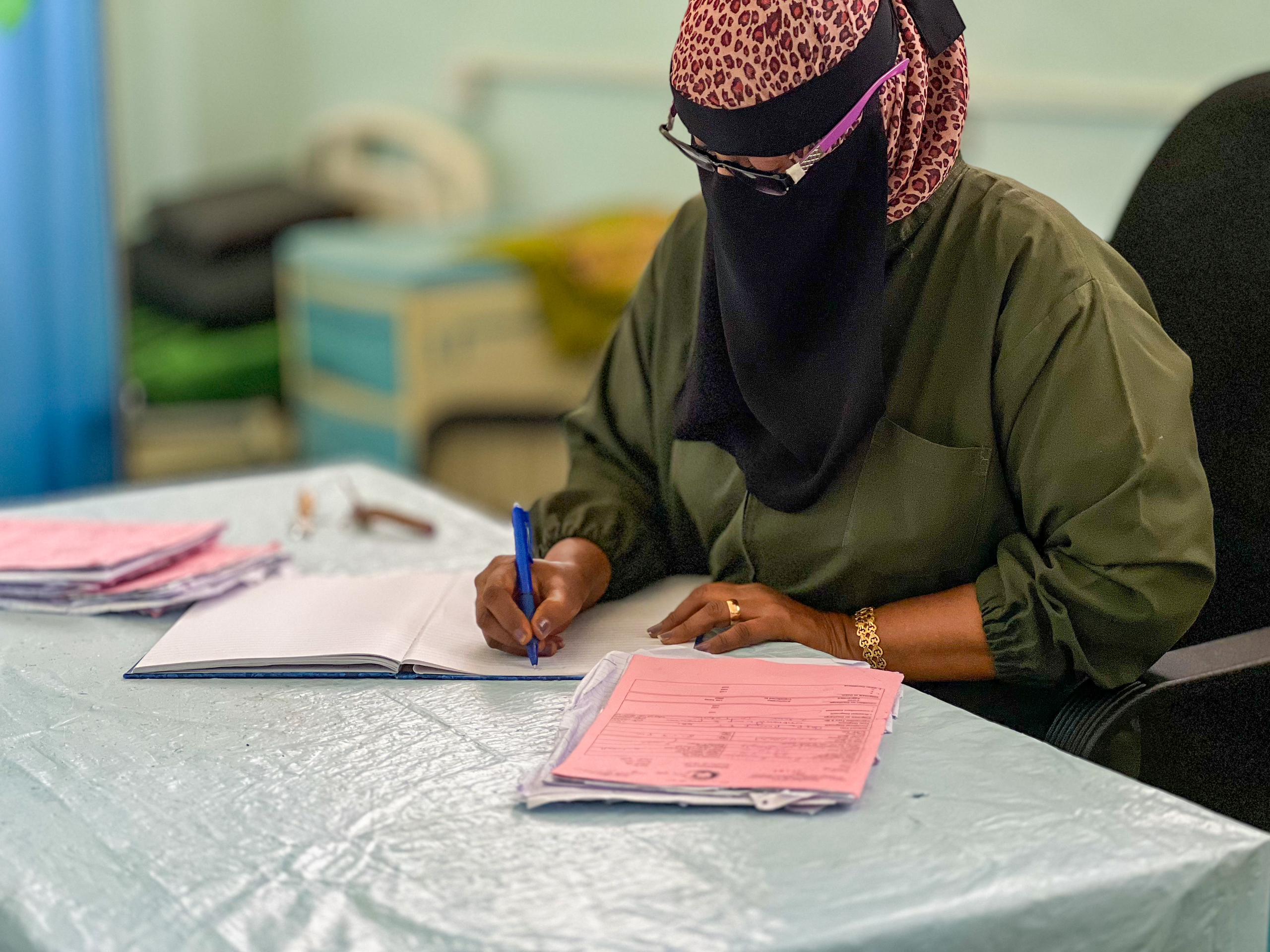 26 October 2025, Aden, Yemen – In the heart of Aden, where conflict, fragility and a crumbling health system converge, 2 health care heroes – Ashwaq Saeed and Hind Hadi – are quietly rewriting the story of maternal and newborn survival. Each day, at Al-Sadaqa Teaching Hospital, they struggle against the odds to give every newborn the best possible start in life.
26 October 2025, Aden, Yemen – In the heart of Aden, where conflict, fragility and a crumbling health system converge, 2 health care heroes – Ashwaq Saeed and Hind Hadi – are quietly rewriting the story of maternal and newborn survival. Each day, at Al-Sadaqa Teaching Hospital, they struggle against the odds to give every newborn the best possible start in life.
Ashwaq Saeed, Supervisor of the Midwifery Department and Head of the Gynaecology and Obstetrics Ward, started at Al-Sadaqa as a volunteer. Her role soon evolved into a life-defining mission.
“Midwifery isn’t just about delivering babies,” says Ashwaq. “It’s about being present at the most vulnerable and beautiful moment in a family’s life.”
In a health system where only 50% of facilities are fully functional and maternal and neonatal mortality rates are alarmingly high, Ashwaq’s passion fills a critical gap. She and her team face a near constant scarcity of supplies, workforce shortages and low community awareness, yet she finds ingenious ways to adapt.
 “We store surplus supplies for emergencies and we educate mothers whenever we can,” says Ashwaq. But to improve outcomes, she adds, more investment in training and equipment is urgently needed.
“We store surplus supplies for emergencies and we educate mothers whenever we can,” says Ashwaq. But to improve outcomes, she adds, more investment in training and equipment is urgently needed.
In the adjacent neonatal unit Hind Hadi, a nurse with over 12 years of experience, manages the care of premature and critically ill newborns. “We receive babies not just from the emergency department but from across other governorates,” she says. “Sometimes we simply don’t have enough beds.”
Her unit battles overcrowding daily, yet her commitment never wavers. “The joy in a mother’s eyes when her child recovers, it’s indescribable. That’s when I know our work truly matters,”
Ashwaq and Hind’s courage and commitment may fill some of the gaps, but without systemic change, training and resources, these health care workers are being stretched beyond their limits. Frontline dedication alone is not enough.
Recognizing these challenges, the World Health Organization (WHO) has taken a decisive role in strengthening Yemen’s maternal and newborn care through the introduction of Early Essential Newborn Care (EENC), a package of evidence-based lifesaving interventions during delivery and the early newborn period designed to prevent the most common causes of newborn mortality – hypothermia, asphyxia and infections – through low-cost, high-impact practices like immediate skin-to-skin contact, delayed cord clamping and early initiation of breastfeeding.
Under the leadership of the Ministry of Public Health and Population, WHO conducted Yemen’s first EENC coaching for facilitators in June 2022, beginning with Al-Sadaqa Hospital.
Baseline assessments prior to the EENC coaching revealed alarming shortcomings in current practice. Many newborns were being separated from their mothers immediately after birth. Skin-to-skin contact and thorough drying were rarely performed. Harmful routines such as early cord clamping and routine suctioning were widespread.
The WHO-supported coaching proved transformative. Staff knowledge scores for managing breathing babies jumped from 0% to 96%, and for non-breathing babies from 36% to 93%. A total of 28 facilitators and staff from 4 hospitals were trained, including Ashwaq and Hind. Both now serve as EENC champions within their departments.
Hind, who had been managing her unit’s overwhelming caseload with limited equipment, now has the technical tools to respond faster and more effectively to emergencies. Ashwaq, empowered by new techniques and protocols, is pushing for changes in hospital policies and advocating for increased recognition of midwives in her community.
The transformation is human as well as technical. EENC has reinvigorated cooperation between paediatricians, obstetricians and nurses. It has restored a sense of agency to health workers that had long been overshadowed by systemic failure.
Sustaining this progress requires more than one-off trainings. As WHO continues to scale up EENC in other hospitals, including Al Sha’ab, Al Razi and Ibn Khaldoun, consistent supplies of coaching materials and medical equipment, as well as policy backing, are vital. Support is also needed to address infrastructure challenges such as the absence of proper resuscitation spaces near delivery rooms, and to ensure mothers have clothing that allows skin-to-skin contact.
Today, it is frontline champions like Ashwaq and Hind who carry WHO’s vision forward. But they cannot do it alone.
Yemen’s health system is still under-resourced, leaving newborn lives at risk. Sustained donor support is urgently needed to expand lifesaving interventions like EENC across the country. By investing in these local heroes and the systems that support them we not only save lives – we restore dignity and hope to families across Yemen.
Every child deserves the chance to take their first breath in safe hands.








